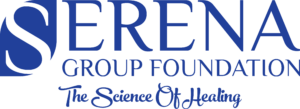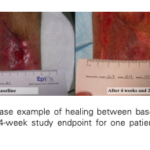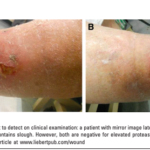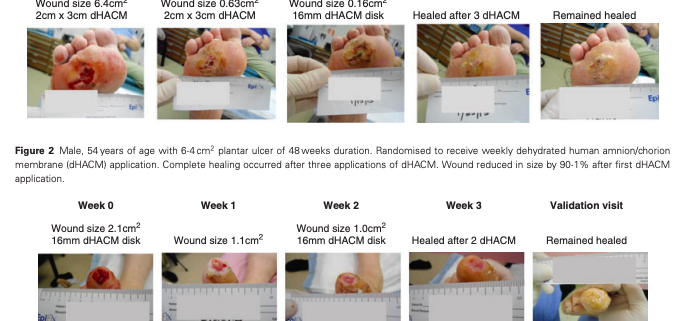
A Prospective Study of Weekly Vs. Biweekly Application of Amnion Membrane Allograft for DFU
Abstract: The aim of this study is to determine if weekly application of dehydrated human amnion/chorion membrane allograft reduce time to heal more effectively than biweekly application for treatment of diabetic foot ulcers. This was an institutional review board-approved, registered, prospective, randomised, comparative, non-blinded, single-centre clinical trial. Patients with non-infected ulcers of ≥4 weeks duration were included for the study. They were randomised to receive weekly or biweekly application of allograft in addition to a non-adherent, moist dressing with compressive wrapping. All wounds were offloaded. The primary study outcome was mean time to healing. Overall, during the 12-week study period, 92⋅5% (37/40) ulcers completely healed. Mean time to complete healing was 4⋅1±2⋅9 versus 2⋅4±1⋅8 weeks (P=0⋅039) in the biweekly versus weekly groups, respectively. Complete healing occurred in 50% versus 90% by 4 weeks in the biweekly and weekly groups, respectively (P=0⋅014). Number of grafts applied to healed wounds was similar at 2⋅4±1⋅5 and 2⋅3±1⋅8 for biweekly versus weekly groups, respectively (P=0⋅841). These results validate previous studies showing that the allograft is an effective treatment for diabetic ulcers and show that wounds treated with weekly application heal more rapidly than with biweekly application. More rapid healing may decrease clinical operational costs and prevent long-term medical complications.
